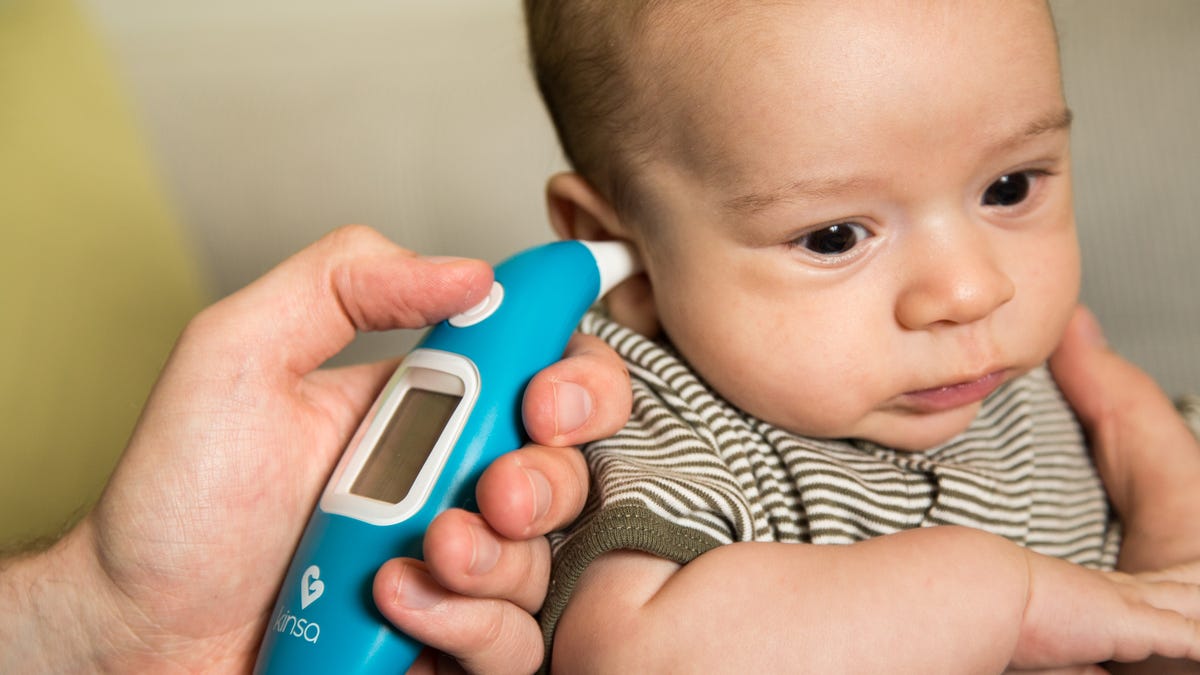Millennials aren't going gaga for baby tech
The second Baby Tech Awards will be announced at CES as companies making technology for infants look to grow out of the teething phase.

In a few years, you'll wear a smartwatch measuring your heart rate, a belt buckle tracking your eating habits and glasses displaying the news while recording what you do in your self-driving car.
But what's Silicon Valley got in mind for your kids?
A four-day exhibition called the Baby Tech Summit, held during the Consumer Electronics Show in Las Vegas this week, is going to offer a look at the industry's latest efforts to convince you to buy for the next generation gear that's loaded with sensors, artificial intelligence and apps.
On the agenda is a discussion about tech for "the Millennial mom," high-tech nurseries and the latest products to help feed infants called "Get Pumped for 21st Century Breastfeeding."
There's also going to be an awards show, put on by the popular parenting blog The Bump. Among the finalists are Elvie, a $200 kegel exercise tracker; Kaishi, a $75 heart-rate monitor for pregnant women; and Ava, a $200 fertility tracking bracelet. Winners will be announced January 5.
Not all of the biggest names in the field will be there, however, including some of last year's winners. Some companies said it's hard to grab attention amid the mayhem that is the thousands of companies attending the show. Also, there's a pass for the show, which can go as high as $1,700, not including the thousands more they'd have to pay for a booth.
VersaMe, maker of a $200 wearable word counter called the Starling, said that since launching in September it's targeted sales to institutions focused on baby health and wellness. The company went to CES last year because it got a free pass and wanted the chance to meet Randi Zuckerberg, the sister of Facebook's CEO, who happened to be a judge for the event.
And then consider that the biggest headlines out of the show are typically TVs, refrigerators , VR headsets and drones . Baby tech, not so much.
"It's super hard to stand out," said VersaMe co-founder Nicki Boyd.
The Starling may be all about talking, but it struggled to generate meaningful buzz at CES.
CES wasn't a bust, though. Some customers say they heard about Starling's win at the show though it doesn't appear to have had much impact. So far, sales to consumers count in the hundreds a day, not thousands, she said.
VersaMe isn't alone. Electronics accounted for less than 9 percent of baby product sales in 2015, according to industry watcher GfK, outdone by clothes and strollers.
It's unclear why these companies struggle to attract consumers in an age when people line up for hours to buy a pair of Snapchat's video-taking Spectacles . Some people believe it's because moms are more in charge of spending on baby products and they're usually not as enthusiastic about tech as dads are. Others think price could play a role.
It could also be that parents are just trying to keep their kids from being inundated by tech for as long as possible. The debate over screen time is a prime example.
Still, with an estimated $67 billion in sales this year, according to data aggregator Statista, any baby tech company that can stand out a little could potentially reap a big payday.
To draw more attention, VersaMe decided to attend more focused events, such as those put on with the Association of Speech Therapists. "If they told you to get one, you'd buy it," Boyd said.
One company returning to CES this year is Freemie, which makes hands-free breast pumps designed to be worn with a shirt. Dan Garbez, a company co-founder, said Freemie saw a "very substantial" boost in sales around the time his company was nominated for awards at CES. The pumps, which were launched in 2013 and which start at $60, are expected to be made available internationally by the middle of 2017.
Kinsa, maker of an FDA-approved smart thermometer that starts at $20, is going VersaMe's route, sitting out CES even after winning an award last year. Like the others, Kinsa said the event drew press coverage of its product. But that didn't translate into a surge in sales.
"It's helpful when someone comes to our website and they saw we won awards," said Nita Nehru, who heads up communications and partnerships for Kinsa.
Kinsa says the award it won at CES last year helps it warm to potential customers.
At nearly three years old, Kinsa also doesn't have anything particularly new to show at CES other than a model made to look like Sesame Street's Elmo, she said.
The company's hoping to eventually debut a real-time health map based on anonymized data collected from people who use the company's thermometer and then tell its companion app what symptoms a child has.
"Hopefully when we're advanced enough to track and stop the spread of diseases," Nehru said of the timing. But first, it needs enough customers to make the data usable.
In the meantime, Kinsa will be attending conferences like the Mom 2.0 Summit for mommy bloggers, scheduled this year for May in Orlando, Florida.
"Other parents read them and look to them as sources of truth," she said. "That's been wonderfully valuable for us."

